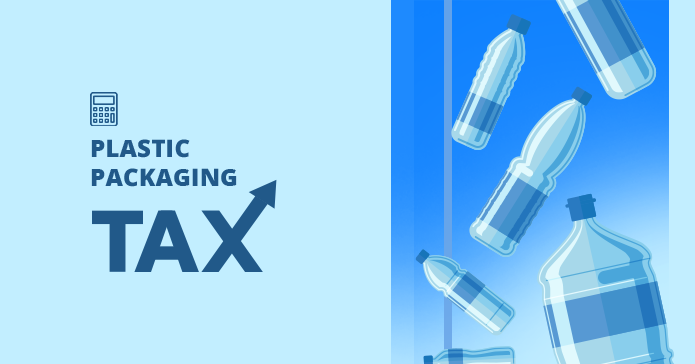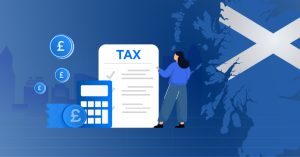What is Plastic Packaging Tax?
The UK government introduced the plastic packaging tax in April 2022 to reduce plastic waste and incentivise the use of recycled materials.
Under this new tax, manufacturers and importers who produce or import single-use plastic packaging with less than 30% recycled content are liable for a charge. The charge is set at £200 per tonne of packaging.
The responsibility for the plastic packaging tax doesn’t just lie on manufacturers and importers, however. Retailers are also responsible for making sure that their products are compliant with the new regulations. To ensure compliance, retailers must make sure that their suppliers have paid the plastic packaging tax or can demonstrate evidence of their use of recycled content.
The UK government is committed to reducing plastic waste and pollution, and this new plastic packaging tax is a key part of that commitment. With the new regulations in place, manufacturers and importers are now incentivised to make sure their products are compliant with the new tax or else face hefty charges.
Who should register Plastic Packaging Tax?
Anyone who manufactures or imports single-use plastic packaging with less than 30% recycled content is liable to pay the Plastic Packaging Tax. Manufacturers and importers should register for this tax to be compliant with the new regulations.
- If you expect to import or manufacture 10 tonnes or more of finished plastic packaging constituent in the next 30 days
- If you have already imported 10 tonnes or more finished plastic packaging constituents into the UK since 1 April 2022
You have got to register for plastic packaging tax, even if you are a non-resident in the UK but still a taxpayer and import on your own behalf.
How is Plastic Packaging Tax calculated?
The plastic packaging tax is calculated by multiplying the weight of single-use plastic packaging with less than 30% recycled content (measured in tonnes) imported or manufactured and multiplying it by the amount of £200 per tonne. The rate applies to all applicable plastic packaging constituents. If you are unsure whether your plastic packaging constitutes as single-use plastic, you can use the HMRC tool to determine your tax liability.
Who is Liable for Plastic Packaging Tax?
The responsibility for the plastic packaging tax primarily lies with manufacturers and importers of single-use plastic packaging. Retailers are also responsible for making sure that their products are compliant with the new regulations, including checking that suppliers have paid the plastic packaging tax or can demonstrate evidence of their use of recycled content.
You can register as a group if you are a member of a business group, If you are in partnership you must register at least 1 partner.
How to register for a Plastic Packaging Tax?
The registration process for the plastic packaging tax is fairly straightforward. You can register online through the HMRC website and you will need to provide information such as your business name, address, contact details, and VAT number (if applicable).
Once your application has been approved, you will be issued with a unique registration number along with your estimated weight of plastic packaging manufactured or imported in the next 12 months if you have already exceeded the 10tonnes threshold then look back at your import or manufacture since 1 April 2022.
Do you pay VAT on Plastic Packaging Tax?
No, the plastic packaging tax is a separate charge and is not subject to VAT. The rate of £200 per tonne applies to all applicable plastic packaging constituents regardless of whether they are subject to or exempt from VAT. However, it’s important to note that when you register for the Plastic Packaging Tax, you will also be required to register for VAT if you are not already registered.
Can You Claim Plastic Packaging Back?
Yes, you can claim back Plastic Packaging Tax by providing evidence of recycled content used in the plastic packaging. You should keep records of production, imports, and exports of plastic packaging with more than 30% recycled content for a minimum of 3 years. You can then use this data to provide evidence that the plastic packaging tax is not applicable to your business.
Conclusion
The plastic packaging tax is an important new legislation in the UK and it’s important for manufacturers, importers, and retailers to understand their liability. It’s also important to remember that you can claim back the Plastic Packaging Tax if you are able to demonstrate evidence of recycled content in your plastic packaging. By understanding the liability and claiming back when you are able to, you can save money on your plastic packaging costs. For more information about the Plastic Packaging Tax and how it applies to your business, feel free to ask Debitam!













